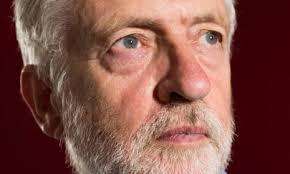Just weeks after its much-anticipated launch, the new left-wing party founded by former Labour leader Jeremy Corbyn and MP Zarah Sultana is facing significant internal and external hurdles, raising questions about its long-term viability and influence. The party, currently operating under the provisional name "Your Party," has been a source of tension among former allies and is now seeing a public rift between its two co-founders.
A Public Rift at the Top
The latest challenge comes from within, as Zarah Sultana has openly criticized Corbyn’s leadership of the Labour Party. In an interview with New Left Review, Sultana accused Corbyn of "capitulating" over the International Holocaust Remembrance Alliance (IHRA) definition of antisemitism and of "triangulating" on Brexit, which she claims alienated a large number of voters. She further stated that under his leadership, the party was "frightened and far too conciliatory" when faced with attacks from the media and what she called "class enemies."
Corbyn, in turn, has publicly rebuked her, telling Middle East Eye that it was "not really necessary for her to bring all that up." This public disagreement over one of the most contentious issues of his leadership signals a fundamental divide at the heart of the new movement. While Sultana believes the party needs to learn from past mistakes, Corbyn appears to view her comments as an unnecessary reopening of old wounds.
Skepticism from Allies and Threats to its Future
The new party’s challenges are not limited to internal squabbles. Prominent figures from the left, including longtime Corbyn ally Diane Abbott, have expressed significant skepticism. Speaking at the Edinburgh Book Festival, Abbott revealed she had advised Corbyn against forming the new party, citing the "very difficult" nature of the UK's first-past-the-post electoral system for new political entrants. "If it wasn’t first-past-the-post, then you can see how a new party could come through," she said, highlighting a key structural barrier to its success.
This sentiment is echoed by many who campaigned for electoral reform and now accuse Corbyn and his allies of a shift in stance, pointing out that proportional representation was not their priority when they were part of the "establishment" Labour Party.
Despite the hurdles, Abbott believes the party could "do a lot better than people think" by tapping into the widespread disappointment with the current Labour government. However, she has indicated she will remain an independent MP for now, highlighting the reluctance of some of his closest former colleagues to fully commit.
The Tower Hamlets Factor
In a potentially game-changing development for local politics, it has emerged that the party's success is being closely watched by councillors and leaders in areas like Tower Hamlets and other parts of East London. Sources suggest that a number of councillors, and even a mayor, are waiting to see how the new party fares before next year's council elections. Their potential defection to the new party could dramatically reshape the political landscape in these areas, where there is a history of independent and left-wing candidates challenging the mainstream Labour Party. The launch of the party in Oldham, a council with no overall control, further underscores a strategy to target marginal wards and create influence at the local level.
Fighting for Influence, Not Power
While the new party may not be on a path to forming a government, its founders appear to have a different objective: to exert significant influence. The party is seen as a vehicle to challenge Labour from the left, especially on issues like austerity, welfare cuts, and foreign policy. Corbyn has already publicly stated that Wes Streeting, a potential future Labour leader, has "a great deal to be worried about" in his Ilford North constituency, given the expected challenge from a pro-Gaza independent candidate associated with the new party. This targeted approach, in alliance with other left-wing groups and the Greens, could lead to a hung parliament and a more influential left-wing bloc in the next government.
With a founding conference scheduled for the autumn to formally name the party and establish its leadership, the coming months will be critical in determining whether this new political force can overcome its initial stumbles and become a genuine threat to the Labour establishment.



_2.jpg)
_3.jpg)



.svg)


